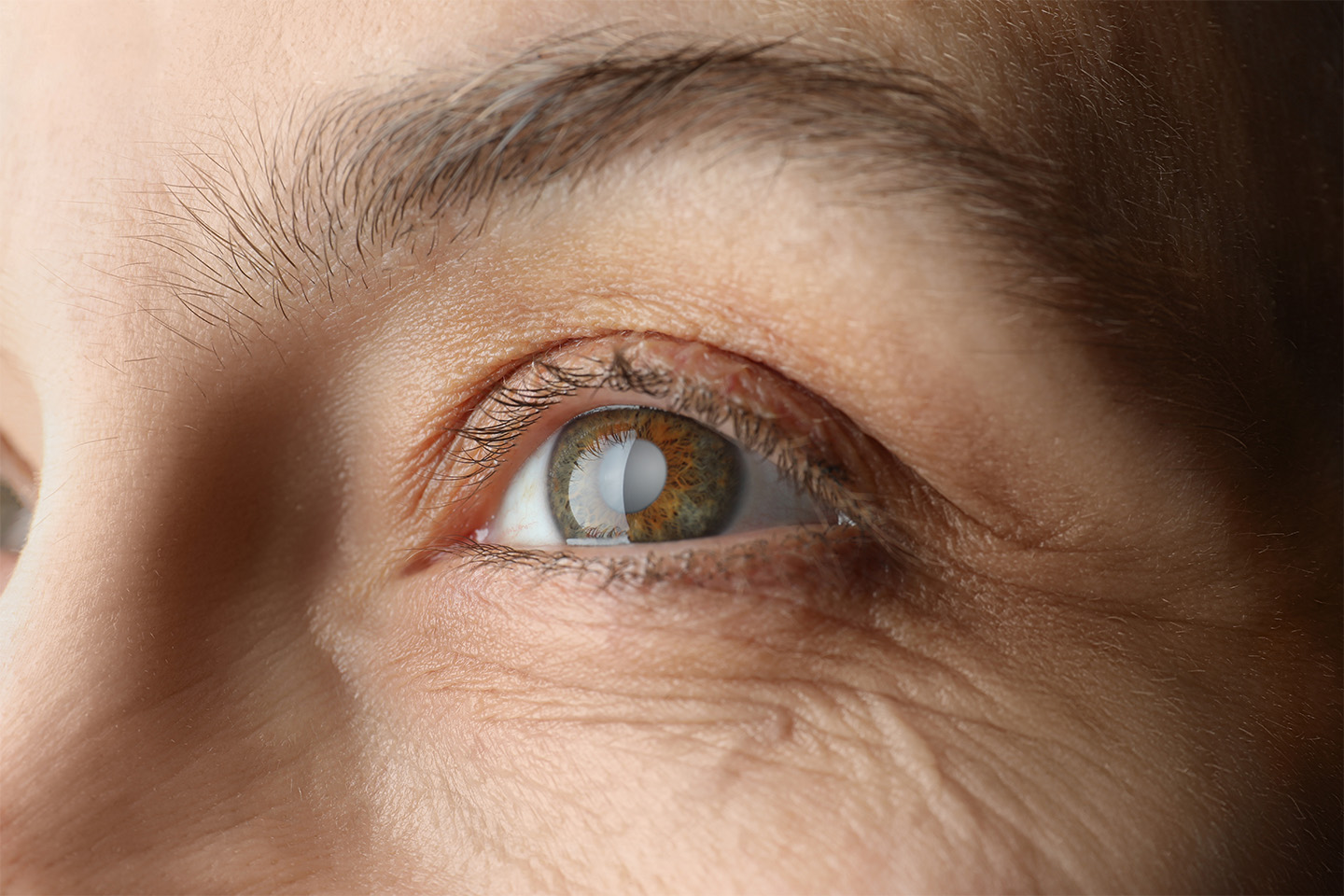Cataract Surgery After LASIK: What to Know

CATARACT SURGERY AFTER LASIK: WHAT TO KNOW
It’s a common misconception that you cannot have cataract surgery if you’ve previously undergone LASIK surgery or a similar vision correction surgery. This myth may be keeping qualified LASIK candidates from seeking life altering vision correction surgery or worse, keeping cataract patients from seeking professional cataract treatment.
The truth is that prior LASIK patients can undergo successful cataract surgery. However, to increase the chances of a successful cataract procedure it’s extremely important to tell your ophthalmologist about your LASIK history.
Why Communication is Important
LASIK and other refractive vision correction procedures (such as PRK) change the shape of your cornea to better focus your vision. This procedure, though commonplace and highly successful, will affect how your doctor treats your cataracts.
Having previously undergone LASIK will make the outcome of your cataract surgery less predictable than cataract surgeries in patients who have not previously had vision correction surgery. Because of this added challenge, your doctor will take extra steps during pre-operative planning to evaluate your eyes and recommend the best intraocular lens (IOL) and prescription for your individual circumstances.
It’s important to remember that while determining the correct IOL prescription is complicated by a previous vision correction surgery, it is by no means a deal breaker when seeking cataract treatment and surgery.
What You Need to Tell Your Doctor
Once you tell the doctor treating your cataracts about your previous LASIK or PRK surgery, he or she will ask for additional information. To create the best cataract treatment plan possible, your doctor will ideally need:
- Pre-LASIK eye measurements
- Pre-LASIK vision correction prescription
- Post-LASIK eye measurements
- Post-LASIK vision measurement (prior to developing cataracts)
The pre-LASIK information will tell your doctor about your original vision and the natural curvature of your cornea. This information is important in helping your doctor determine the correct IOL prescription for your cataract lens replacement.
The Risks of Cataract Surgery After LASIK
It’s possible that the myth of LASIK patients being unable to undergo cataract surgery may stem from the additional challenges a previous LASIK surgery presents to cataract treatment. LASIK and other vision correction procedures change the shape of your cornea. This alternation makes determining the correct cataract IOL prescription more difficult — though not impossible.
Treating cataract patients who haven’t had vision correction surgery is typically straight forward. Existing formulas help doctors determine the correct IOL prescription with a high degree of accuracy. Implanting the correct IOL is key to clear vision following cataract surgery and for many people means they don’t need corrective lenses for distance vision (though they may still need glasses for near vision).
The main risk associated with cataract surgery in LASIK patients is that the wrong IOL prescription will be calculated, resulting in blurry, unfocused vision following cataract surgery. In some cases a new LASIK procedure can correct this issues, in others a new intraocular lens placement procedure may be needed.
Why This Happens
LASIK, PRK and other modern vision correction procedures effect the shape and curvature of the outermost layers of your cornea, but have little to no effect on the “posterior” or back portion of the cornea. This changes the refractive index of your eye overall. This change makes the standard formula used to estimate the best IOL prescription for your eye less accurate — because your eye no longer fits the assumed relations between the front and back of the cornea.
Essentially, changing the shape of the front of your cornea (which is what enables LASIK to correct your vision) throws off the traditional measurements used by doctors to calculate IOL strength. This is why providing your doctor with pre-LASIK eye measurements (preferably corneal topography measurements) is helpful. By understanding the original shape of your cornea and its current shape, your doctor can create a more accurate prediction and prescribe an IOL that is more likely to be correct.
The Bottom Line
We know that any surgery that effects your eye sight can be nerve wracking, particularly when discussing complicated and technical sounding factors like “refractive index” and how we measure for and prescribe a replacement lens. The bottom line is that yes, you can have cataract surgery if you’ve had LASIK or PRK before.
Your doctor at ICON Eyecare will work with you to carefully explain the entire process and all risks involved. We’ll take all the measurements we need and look at your eye health history to determine the best IOL for your vision as accurately as possible. We’re happy to answer any questions and discuss concerns you might have and take the time to talk through the procedure to ensure you feel comfortable with the process. By carefully practicing our craft we’re able to obtain the best possible outcomes for our patients.
About ICON Eyecare
ICON Eyecare is a leading surgical and medical eye care provider based out of Denver, CO. Since 1999, ICON has been building a Center of Ophthalmology Excellence empowered by an expert team of board certified physician specialists, the most advanced laser technology and a culture of quality and extraordinary patient care. In coordination with referring optometrists and physicians, ICON Eyecare specializes in treating patients with cataracts, advanced forms of glaucoma and other age and disease related conditions, while providing innovative options for patients seeking LASIK and cosmetic eye procedures. With 14 patient care centers located in Colorado and Texas, ICON Eyecare is expanding within the broader western U.S. region. For more information, please call (720) 524-1001, or visit iconeyecare.com.
[DISPLAY_ULTIMATE_SOCIAL_ICONS]








